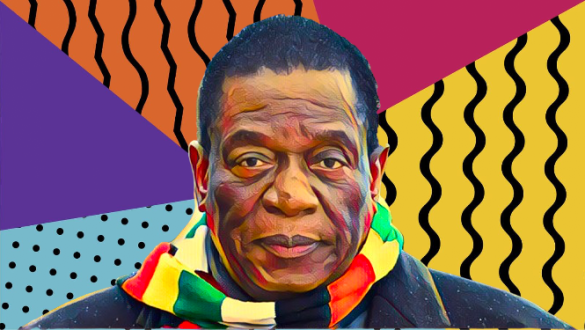President Emmerson Mnangagwa has called upon traditional chiefs to help reconcile and pacify Zimbabweans over the deeply emotional Gukurahundi massacres. This move aims to address longstanding grievances stemming from the violent crackdown in the 1980s, which resulted in the deaths of thousands of civilians in Matabeleland and Midlands.
The Gukurahundi massacres, executed by the North Korean-trained Fifth Brigade, have left a painful legacy in Zimbabwe. Efforts to heal these wounds have been sporadic and often met with resistance. Mnangagwa’s recent initiative seeks to leverage the respected positions of traditional chiefs to foster dialogue and promote healing within affected communities.
During a meeting with the National Council of Chiefs, Mnangagwa emphasized the critical role of traditional leaders in this reconciliation process. “Our chiefs are custodians of our culture and heritage. They are best positioned to lead efforts in resolving issues related to Gukurahundi,” Mnangagwa stated. He urged the chiefs to engage with their communities, listen to their concerns, and facilitate a path towards national unity and healing.
Chief Fortune Charumbira, president of the National Council of Chiefs, expressed support for Mnangagwa’s initiative. He acknowledged the sensitivity of the Gukurahundi issue and underscored the importance of a grassroots approach to reconciliation. “We must handle this matter with care and empathy, ensuring that we address the needs and grievances of the affected people,” Charumbira remarked.
The engagement of traditional leaders is seen as a strategic move to gain trust and cooperation from the communities most affected by Gukurahundi. These leaders, deeply embedded within their local contexts, have the cultural authority and influence necessary to mediate and guide reconciliation efforts.
However, the initiative has been met with skepticism by some human rights groups and opposition figures. Critics argue that true reconciliation requires transparency, accountability, and justice, not just dialogue. They call for an independent commission to thoroughly investigate the massacres and hold those responsible accountable.
Opposition leader Nelson Chamisa highlighted the need for a more comprehensive approach. “While engaging chiefs is important, it is not enough. We need a truth and reconciliation commission to fully uncover the truth and ensure justice for the victims,” Chamisa said. He stressed that without addressing the root causes and delivering justice, reconciliation efforts might fall short
The government has faced persistent criticism for its handling of the Gukurahundi issue. Previous attempts at reconciliation, including the establishment of the National Peace and Reconciliation Commission (NPRC), have made limited progress. Many victims and their families continue to demand justice and reparations for the atrocities committed.
Despite these challenges, Mnangagwa’s administration hopes that involving traditional chiefs will mark a turning point in the reconciliation process. The government has pledged to support the chiefs in their efforts and to consider their recommendations seriously.
As Zimbabwe grapples with its past, the path to reconciliation remains complex and fraught with obstacles. However, the involvement of traditional leaders offers a new avenue for addressing the deep-seated wounds of Gukurahundi. The success of this initiative will depend on the commitment of all stakeholders to a genuine and inclusive process of healing and justice.
Source: New Zimbabwe


